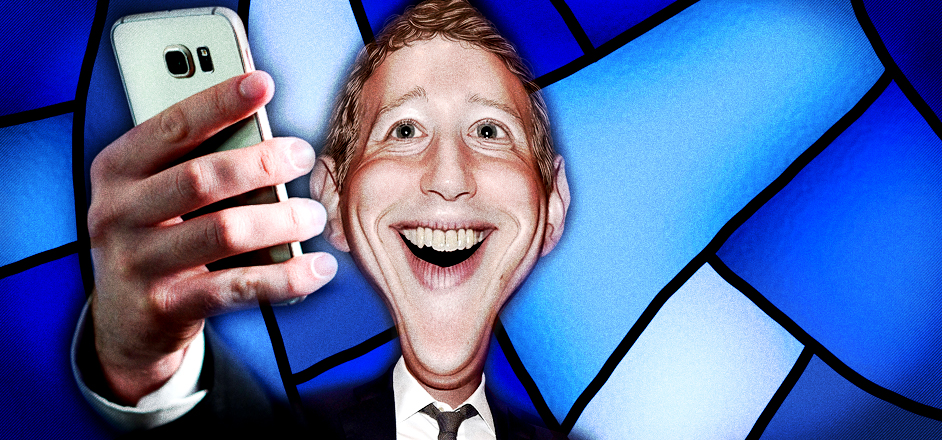Tech guys and gals have had a lot of crazy ideas over the years on how to take over the world. And with things from super-tube transporters to controlling computers with the mind already on the move, the very real possibility exists that it might happen in our lifetimes. Yet none is crazier than that of a future under Mark Zuckerberg, Social Saint of the Interwebs, Deity of the Download.
He foresees a religious Uptopia in which everyone actually gets along and helps one another in times of need. You know, something exactly the opposite of what Facebook is today.
But churches kind of preach those peaceful ideals, at least in theory, which is why Facebook's motive is to be more like them with Zuckerberg acting as the pastor behind a digital lectern. He said so while referencing the company's new mission moving forward: "Bring the world closer together."
"As I've traveled around and learned about different places, one theme is clear: every great community has great leaders," he said. "Think about it. A church doesn't just come together. It has a pastor who cares for the well-being of their congregation, makes sure they have food and shelter."
So wait, did he say he thinks of himself as a leader of an online congregation, all 2 billion of them? He went on to say that he thinks of the social media site as a big world that can have smaller communities tied into it, where people engage with one another in positive ways.
You may have even noticed lately Facebook's algorithms are spitting out suggestions to you and your friends about joining specific community groups. Zuckerbeg claims that tweak in code has led to a 50 percent increase in people joining at least one group in the past 6 months — which may or may not be a lot considering most users likely didn't know they ever existed in the first place.
But it makes sense, people have an innate desire to be a part of something, even if that something is against all rationale of stability and well-being. It's why sports are such a massive commodity worldwide, and why small pockets of violent hoodlums pop up in societies that will never have any use for them. Acceptance, belonging, it's what we all want.
"We all get meaning from our communities," Zuckerberg added. "Whether they're churches, sports teams, or neighborhood groups, they give us the strength to expand our horizons and care about broader issues. Studies have proven the more connected we are, the happier we feel and the healthier we are." (Ironic, isn't it? Because he means "connected" to each other, not "connected" to the Internet, which actually has devastating effects on the human psyche — a problem he's very much a part of.)
Depressing facts about Internet dependency aside, Facebook still wants to build more value for its shareholders. And for 4,000 years, one of the most lucrative businesses worldwide has been the church — it makes sense one of the largest corporations would follow its proof of concept.
“People who go to church are more likely to volunteer and give to charity," he continued, suggesting a move back into religion is the future's only hope. "Not just because they're religious, but because they're part of a community. (Insert product plug here.)"
So as younger generations are increasingly searching for meaning in things other than a supreme being, Zuckerberg sounds like he wants to slow all that down and move into the position Jesus once occupied in the lives of millions worldwide.
Crazier things have happened. …
Our Father, who art in online heaven,
Zuckerberg be thy name.
Thy ex-stalking come.
Likes will be done,
on posts in every cellphone session.
Give us this day our daily read,
and forgive us our comment arguments,
as we forgive those who argue against us,
and lead us not into responding temptation,
but deliver us from our Newsfeeds.
For ever and ever,
Amen.



Leave a Reply
You must be logged in to post a comment.